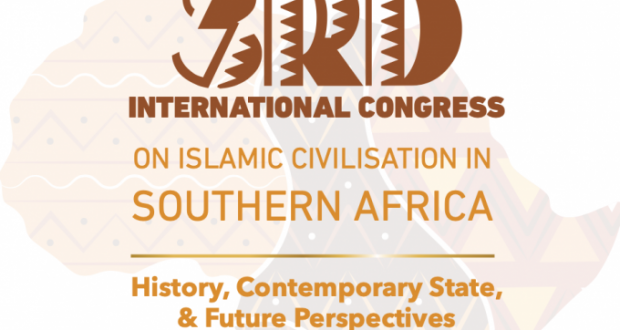The third instalment of the International Congress on Islamic Civilization in Southern Africa has concluded in Cape Town. The three-day event examined the influence of Islam in Africa.
Jointly organised by IRCICA the Research Centre for Islamic History, Art and Culture institute of the Organisation of Islamic Conference (OIC), Awqaf South Africa, and the University of the Western Cape (UWC), the Congress sought to unpack the spread of Islam in Southern Africa and the relationship between trade and Islam.
It also examined Islamic literature, Islamic education, the coexistence of cultures and the establishment of financial institutions. This was the third International Congress on Islamic Civilization in Southern Africa, with previous ones being held in Johannesburg (2006) and Durban (2016).
“The purpose is basically to bring together a range of Scholars to look at what research has been done in specific areas of interest to the Muslim community of South Africa and Southern Africa,” said Zeinoul Abedien Cajee, the CEO of Awqaf SA.
SMread: Fred Khumalo on two of his latest novels
Events at the Congress
The three-day event hosted 12 panel discussions and three special panels. The first special panel included experts from Yemen and Libya who discussed the Arabic language, followed by a panel in memory of Sh. Abu Bakr Effendi and a third in memory of Imam Abdullah Haron.
The Congress also highlighted the role of media in the Muslim community. Professor Muhammad Haron said Muslim media could be utilised as a vehicle for transformation.
“These platforms in one way or another record the history of Muslim communities. It records other issues pertaining to Muslims. It is necessary to also then evaluate these particular platforms as a way to advance, to transform, to change [and] to influence the thinking on the ground,” he said.
The Congress also held a panel on Muslim leadership and another on Muslims in the medical field, among others. Haron said the result of this was that people were made aware of Muslim contributions to society that had previously been unheard of.
SMread: Navigating through tough times as a Muslim
Decolonistion project
Cajee said the International Congress on Islamic Civilization in Southern Africa could in a way be described as a “decolonisation project”. He explained this was because it sought to disseminate “authentic” work on Islam.
“One of the basic ideas behind this is that our people become producers of knowledge rather than consumers of knowledge that has been produced by Orientalists and from people elsewhere. We have authentic knowledge that is produced by ourselves and it’s also a kind of a decolonisation project,” he said.
Cajee said a book would be compiled in time to come after the International Congress on Islamic Civilization in Southern Africa. He said this was in line with the underlying objective of the Congress, which was to promote authentic work and make it accessible to everyone.
“We want to think according to what our own authors and writers are saying about ourselves. This is an underlying theme of the entire Congress; that we produce authentic knowledge and we try to make it as accessible as possible.”
